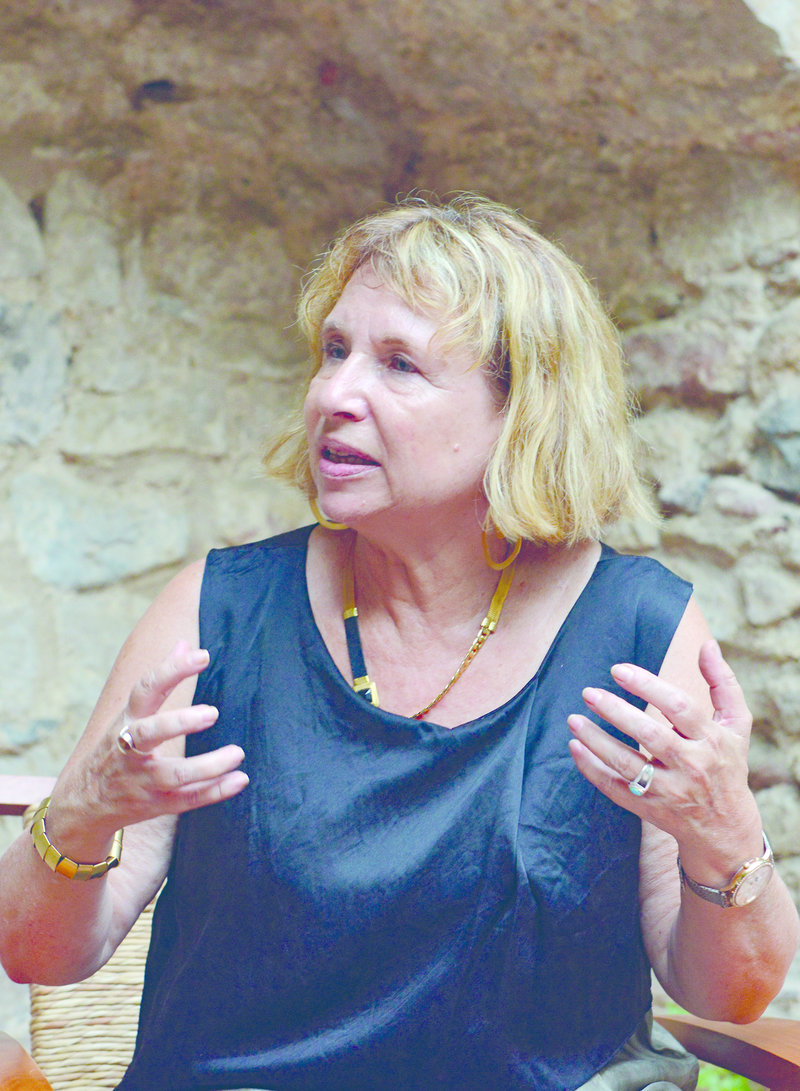News
Fania Oz-Salzberger
Historian and author of Jews and Words
'Ours is not a bloodline, but a textline'
Israeli writer and historian Fania Oz-Salzberger was in Girona last month to give the lecture, La identitat jueva més enllà de la religió (Jewish Identity beyond Religion), bringing to a close the series of talks, La identitat des de l’absència (Identity from Absence), from the Nahmanides Institute for Jewish Studies at the Museum of Jewish History.
This is your second visit to Girona. In your talk you said your relationship with the city is almost mystical. Why?
The mystical element has to do with the fact that I first heard of Catalonia as a teenager, through a translation of one of my father’s books, in the kibbutz I went to until I was 18. There was something about Catalan that I found intriguing, but I didn’t know why. I thought maybe it was because Catalans and Jews had crossed paths in history, and also because they are comparable nations: small groups with a very intense sense of culture and belonging, trying to survive in largely hostile environments that have always tried to swallow them, but without succeeding. So I thought it was just this intellectual comparison. Then, some mystical power brought me to Catalonia in 1989 for my honeymoon, which we decided to spend here, I don’t know why. We came to Girona and I felt a little sad and excited at the same time, because the old quarter was heavy with Jewish memory, but largely vacant and solitary. This museum was already here, only two years old at the time, very tiny and with very few visitors, so we felt like the last Jews on Earth. It all seemed a bit artificial to us, and it felt like a ghost city.
And now that you’re back?
It is refreshing to see how this museum has flourished and grown, the splendid medieval city, and that there is a community and interest in recovering the historical memory.
And the mystical element? You are not religious...
The final piece of mysticism I just found out only a few weeks before coming to Girona, that through the Horowitz branch of my family, I am Gironan, through my forebear Rabbi Isaiah Halevi Horowitz. This made me shudder a little bit, but I still don’t believe in God. I don’t think it’s a coincidence; I think it has to do with the secular movement of Jewish continuity.
You come from a family with roots in Ukraine and Bessarabia [a historical region in present-day Moldavia]. Have you been back?
My father still refuses to go. I did go three years ago for an Israeli television programme, all the way to Rivne in northern Ukraine, the town of my father’s mother, Fania, who died tragically when my father was a child. She missed her birthplace a lot, but couldn’t ever go back. For years, my father didn’t tell me her story, and then when he wrote his autobiography, A Tale of Love and Darkness [2002], I found out her real story, and that I am named after her. My experience there was a bit sad, because I found the place empty of memory. Then they made a film about the book, which was Natalie Portman’s debut in film directing.
In your book, Jews and Words, which you co-wrote with your father, you say that one of the secret mechanisms of Jewish survival has been textuality, words and debate. Has this adherence to the word saved the continuity of Jewish culture?
I don’t like the word “identity” very much, I consider it a bit fatalistic. Faith was really important, but words have been more important than rituals. Ours is not a bloodline, but a textline. This is the most important sentence in the book. It is about transmitting knowledge to the young generations, not through obligation or submission, but through conversation and debate. A modern metaphor is the memory stick, which by the way is a Jewish invention. The historic Jewish heritage has always been like this: we have travelled the world with all our baggage on a memory stick.
Humour is also a key in the continuity of Jewish culture.
Yes, it is very important for my father, and for myself as well. It is quite self-ironic, even absurd, which is why we love Woody Allen and Monty Python so much. It is also deadpan, like talking straight but being funny at the same time, being irreverent and also twisting reality. Humour is part of the argument: surprise the other and yourself, engage debate and question everything. Debate has been crucial in our culture.
In the book, you explain how when confronted with danger, Jews grabbed two things: books and children.
Yes, they are the joint pillars of our culture and continuity. Another crucial thing is the combination between food and books. Not just those of tradition and folklore, but sophisticated books that were left on our table even as very young kids, as food for thought, for debate.
Leave a comment
Sign in.
Sign in if you are already a verified reader.
I want to become verified reader.
To leave comments on the website you must be a verified reader.
Note: To leave comments on the website you must be a verified reader and accept the conditions of use.

